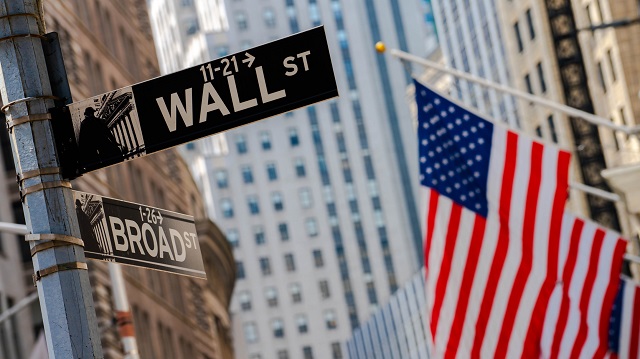
New York, U.S. | Xinhua | Wall Street’s major averages advanced in the first trading week of the new year as investors shrugged off the turmoil in Washington and a weaker-than-expected December U.S. employment report.
All the three major indexes finished higher on Friday after achieving their respective milestones in the prior session. On Thursday, the Dow Jones Industrial Average closed above 31,000 points for the first time, while the S&P 500 and the tech-heavy Nasdaq clinched their first-ever closes above 3,800 and 13,000, respectively.
For the week, the 30-stock index and the S&P 500 climbed 1.6 percent and 1.8 percent, respectively, while the Nasdaq advanced 2.4 percent.
The S&P U.S. Listed China 50 index, which is designed to track the performance of the 50 largest Chinese companies listed on U.S. exchanges by total market cap, logged a weekly rise of 6.48 percent.
The market moves came as the United States is struggling to recover from a deadly spiral of chaos and violence engulfing the Capitol on Wednesday.
The U.S. Congress certified President-elect Joe Biden’s victory in the 2020 election early Thursday morning, after supporters of outgoing President Donald Trump stormed the Capitol on Wednesday afternoon, halting the certification process for several hours.
Biden will be inaugurated on Jan. 20, with his party controlling both chambers of Congress, after Democrats were projected to win both U.S. Senate runoffs in the southeastern state of Georgia.
The victories will allow Democrats to split the 100-seat U.S. Senate 50-50 with Republicans. Kamala Harris, after she is sworn in as vice president of the United States, will be in a position to cast the tie-breaking vote. Democrats keep a majority in the House but their advantage over Republicans is narrow.
Investors also assessed the possibility of additional U.S. fiscal stimulus after the double Georgia Senate win for Democrats.
“Still, it’s not a Blue Wave,” as “both Houses of Congress are almost evenly divided, meaning it will still be difficult to move legislation,” Chris Low, chief economist at FHN Financial, said in a note.
Meanwhile, multiple data released this week indicated a surging virus outbreak continued to threaten the U.S. economic recovery.
U.S. employers slashed 140,000 jobs in December, the first monthly decline since April 2020, as the recent COVID-19 spikes disrupted labor market recovery, the Labor Department reported Friday. Economists polled by Dow Jones expected a gain of 50,000.
The unemployment rate, which has been trending down over the past seven months, remained unchanged at 6.7 percent, according to the monthly employment report.
The figures suggested that “the COVID surge beginning last fall has finally forced enough economic restrictions to stall the recovery for at least a month,” said Low.
“The return of strict social distancing in California, New York and other COVID hotspots had severe consequences for restaurant workers and others in the leisure and hospitality sector. The employment recovery has stalled as a result,” he said.
The December U.S. Manufacturing PMI (Purchasing Managers’ Index) registered 60.7 percent, following the November reading of 57.5 percent, the Institute for Supply Management (ISM) reported on Tuesday.
“The manufacturing economy continued its recovery in December,” but “absenteeism, short-term shutdowns to sanitize facilities and difficulties in returning and hiring workers are causing strains that are limiting manufacturing growth potential,” said the ISM report.
The United States has registered more than 22 million confirmed COVID-19 cases with related deaths exceeding 371,000 as of Saturday afternoon, showed a tally by Johns Hopkins University.
“In the current environment, I can see how all-time (market) highs might seem like a warning signal, particularly with growing optimism and high valuations in some key areas,” Mitch Zacks, CEO at Zacks Investment Management, said in a note on Saturday, noting “the key is for investors not to give into the negative narrative as market predictions and uncertainties steadily rise.”
“Having uncertainties and doubt are normal, but instead of focusing on these uncertainties, I recommend focusing more on the hard data and economic indicators that could impact your investments in the long-term is important,” he added.
******
Xinhua
 The Independent Uganda: You get the Truth we Pay the Price
The Independent Uganda: You get the Truth we Pay the Price





